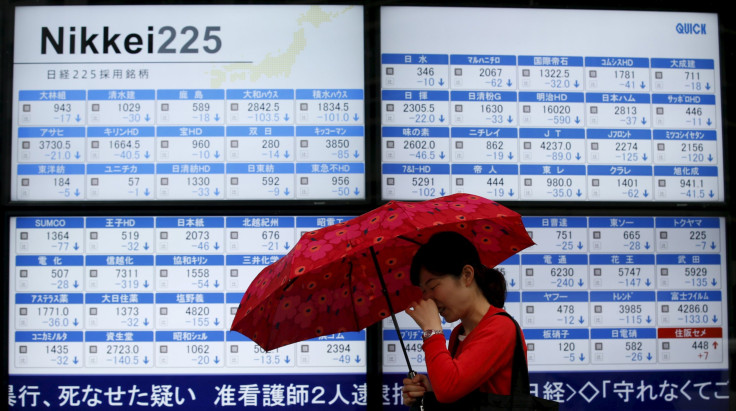Japan Stock Markets Slip Into Bear Territory, Asian Markets Follow

Japanese stock markets slipped into bear territory Wednesday as stock markets across Asia fell after the International Monetary Fund (IMF) Tuesday cut its forecast for global growth for a third time in less than a year. A slowdown in Chinese trade and weak commodity prices have hit emerging markets hard, the IMF said.
Japan’s Nikkei 225 benchmark index fell 3.7 percent Wednesday, down 21 percent from last year’s peak on June 24 while the Topix sank 3.7 percent at close in Tokyo, also down 21 percent from its peak in August last year, firmly placing the country’s stocks in a bear market — an industry term for a market whose indexes decline by over 20 percent over at least two months.
“Everything is falling,” Tsutomu Yamada, a market analyst at Kabu.com Securities Co. in Tokyo, told Bloomberg. “It’s difficult for the market to rebound unless oil or something else truly hits bottom. Whether it’s oil, the dollar-yen, U.S. shares, Hong Kong or Shanghai shares — something has to rebound.”
Markets across Asia registered losses Wednesday. Hong Kong’s stocks hit a 3-year low when the Hang Seng fell 3.54 percent and its currency fell to its weakest level since 2007. China’s Shanghai Composite Index was down 1.03 percent while India’s S&P BSE Sensex was trading lower by 1.82 percent. South Korea’s Kospi Index fell 2.4 percent.
“We’ll continue to see a tug-of-war between nervous sentiment and technical indicators showing that falls have gone too far,” Chihiro Ohta, general manager of investment information at SMBC Nikko Securities Inc. in Tokyo, told Bloomberg.
On Tuesday, IMF stated that the rebalancing of China’s economy, lower commodity prices and the gradual removal of investor-friendly monetary policy by the U.S. would weigh on growth prospects in the coming year.
© Copyright IBTimes 2024. All rights reserved.




















